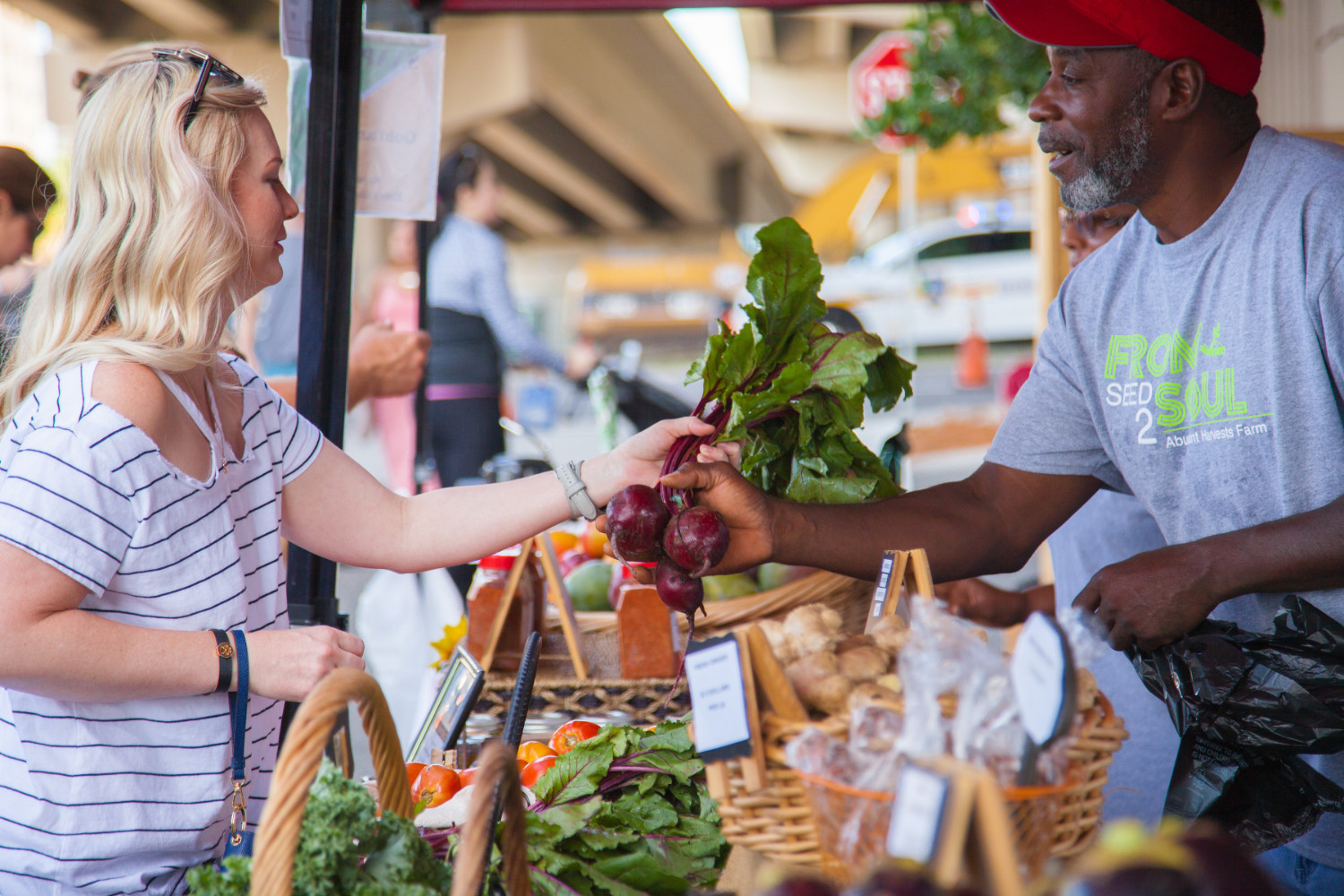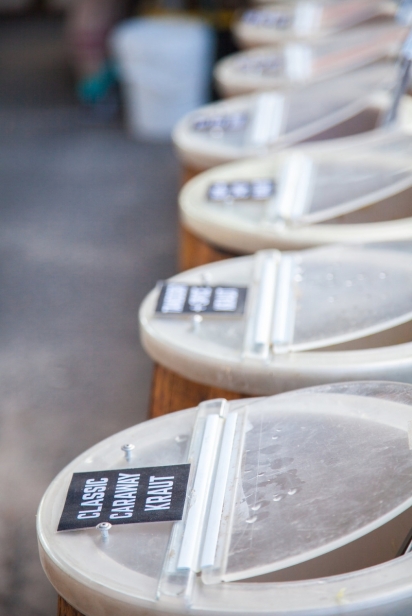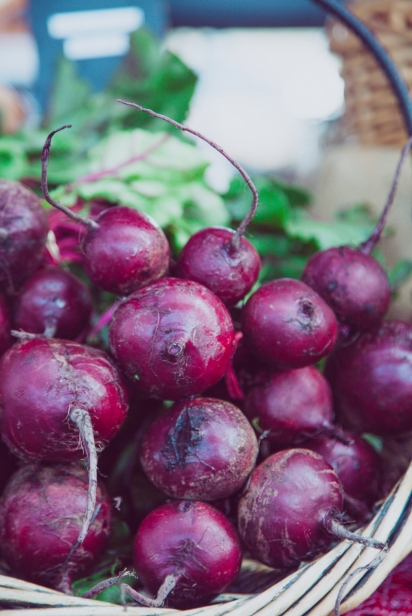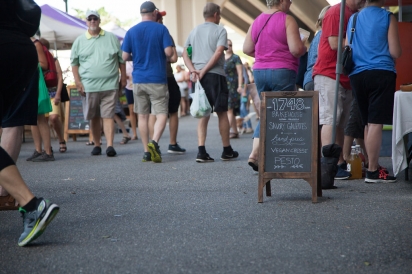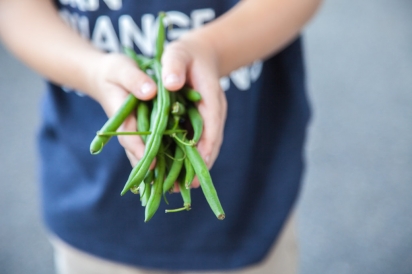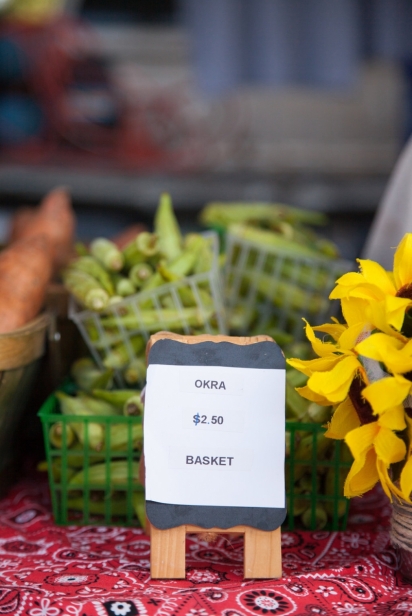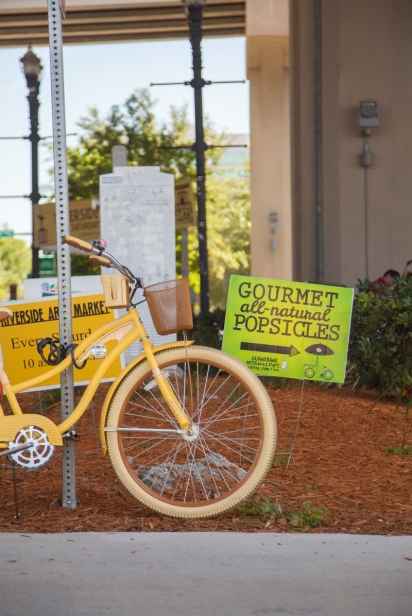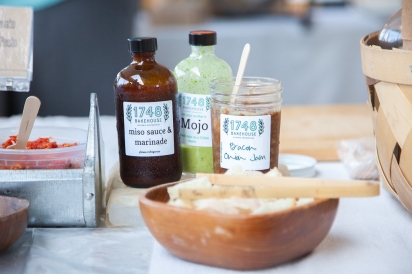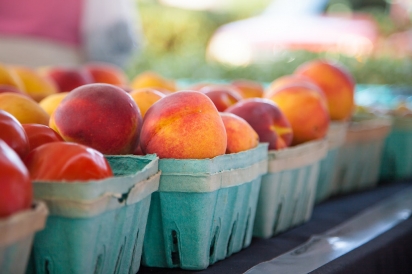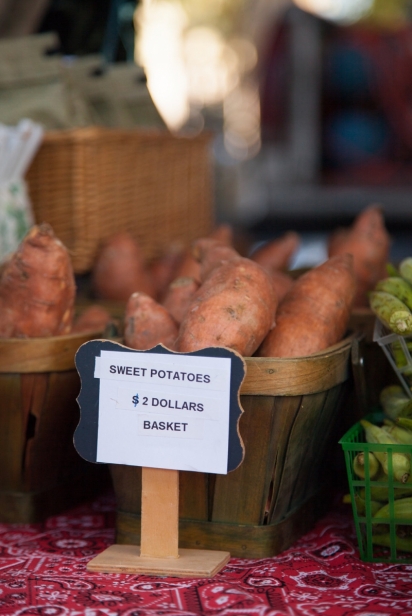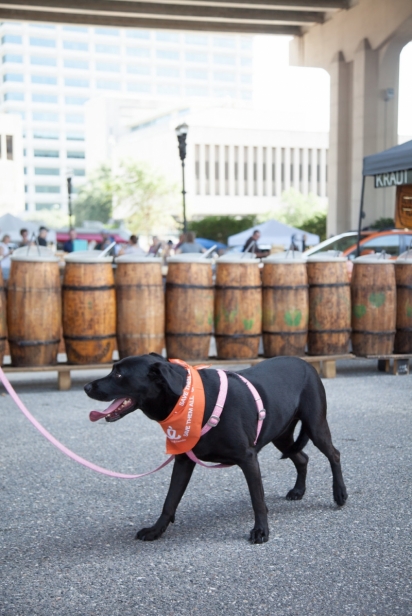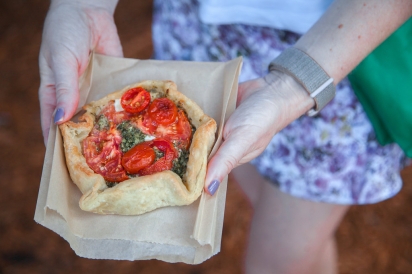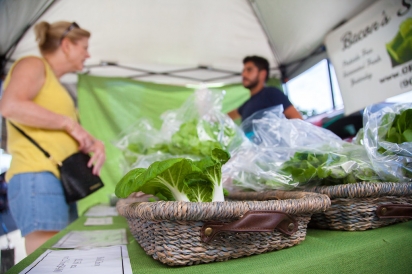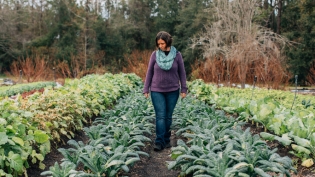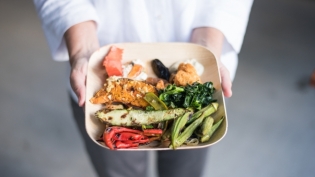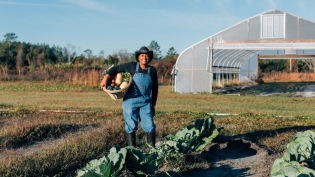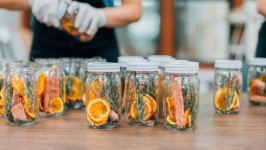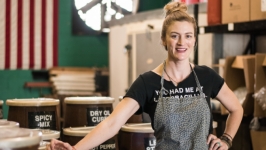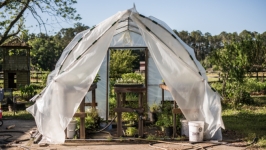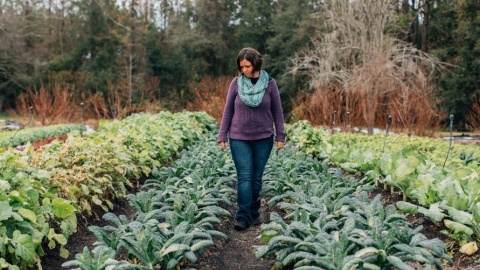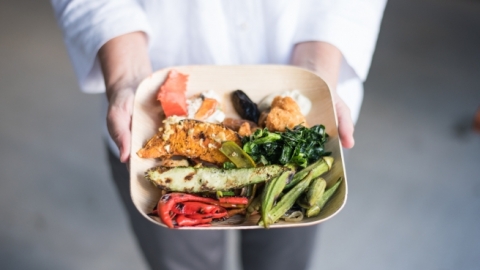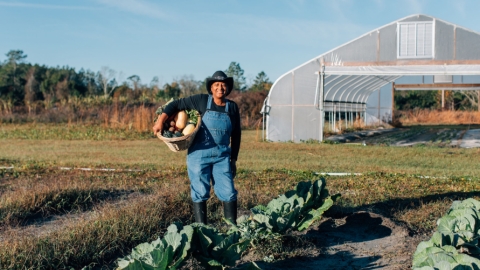Farmers' Markets: Business Incubators and Community Resources
These days, it seems like you can get almost anything from Amazon or the chain stores that anchor the majority of Northeast Florida’s shopping centers.
Yet, despite the convenience of online shopping and proliferation of national chains, over the past 20 years, the number of farmers’ markets in the U.S. Department of Agriculture’s Farmers’ Market Directory has steadily risen, from just over 2,400 in 1996 to more than 8,600 in 2017, according to the Farmers Market Coalition (FMC). Over 150,000 farmers, ranchers and agricultural entrepreneurs currently participate in these markets nationwide, with direct-to-consumer sales of roughly $1 billion a year.
Which may leave one to wonder: what is it about farmers’ markets that continues to set them apart from their competition in this age of one-click, impersonal shopping?
One visit to a farmers’ market will reveal that it is so much more than just a place to pick up fresh, seasonal produce and artisan food. Not only do markets help bridge the gap between rural and urban communities, but they also offer a plethora of benefits to the farmers and food entrepreneurs who take part in them, the customers who shop at them and the neighborhoods that host them. These benefits include, but are not limited to, the preservation of farmland, increased access to fresh and nutritious food and local economic growth.
What may surprise those who frequent their local farmers’ markets is the extent to which they can also serve as small business incubators and springboards for other opportunities. According to the FMC, farmers’ markets provide a much-needed low-barrier marketplace entry point for new farmers, ranchers and food artisans. A place where they can start small and try out new products.
“It’s because of markets that we have loyal customers, a strong community following and a growing wholesale presence,” said Samantha Sievens, co-owner of The Zen Butcher Company. “Foot traffic at these events is a huge plus because it leads to more sales and word of mouth. It happens pretty regularly that a wholesale buyer, restaurant owner or chef will say they heard about our products from a customer at Riverside Arts Market [RAM].”
The Zen Butcher Company is one of several vendors who have found success at – and beyond – the region’s farmers’ markets. These vendors are as varied as the markets themselves, ranging from startups to award-winning businesses that sometimes have expanded into the retail, wholesale and hospitality realms, primarily via e-commerce and brick and mortar locations. Even if they have grown bigger, they all have one thing in common that keeps them coming back to market week after week – a deep appreciation for the opportunities and community support that farmers’ markets have provided them along the way.
“Farmers’ markets were crucial to our retail business; they helped us refine our product line, and better understand what consumers are looking for,” said Scott Meyer, founder of Congaree and Penn Farm & Mills. “[They] are a great place for consumers to have a one-on-one dialogue with farmers and entrepreneurs, and a great place for us to get to speak directly with the customer. You make friends and you get ideas from one another. It is truly a community.”
THE START-UP
At the start-up end of the vendor spectrum is The Lentil House, which Sharlay Smith launched in the fall of 2017. She currently sells fried lentils, a product based on a beloved childhood snack, at the Arts District Farmers’ Market and on Facebook.
Smith initially decided to participate in farmers’ markets because they seemed like an affordable way for her to introduce her product and sell it directly to the consumer, with whom she was hoping to connect. So far, this strategy seems to be paying off.
“Participating in a farmers’ market has helped my business grow through word of mouth from the neighbors in the community discovering my gourmet snacks there,” Smith said. “The exposure has been great, because people are now looking for The Lentil House in order to get their hands on some fried lentils.” As a result, Smith is planning to participate in other local farmers’ markets.
FROM STANDS TO STORES
Like Smith, Charlotte and Shai Tzabari started at farmers’ markets, where their business, Olive My Pickle, has been a staple since 2010.
“Starting at farmers’ markets and growing organically has allowed us the margin of error we’ve needed in honing our production process,” said Charlotte, co-owner of Olive My Pickle.
“We’ve had a lot of pickles go into the dumpster over the years because we didn’t know what the hell we were doing! As a result, we didn’t have them for sale at the markets. If we were strictly a retail business, we wouldn’t have that option. At retail, if your batch fails and you miss a delivery window you lose your shelf space. Farmers’ markets are more forgiving and if you’re inexperienced, they’re a safer place to get started.”
Tzabari noted that she and her husband Shai still love participating in farmers’ markets. They plan to do so for as long as it continues to make sense, as their business grows on the retail side via e-commerce and natural food stores like Lucky’s Market, which carries items from their line of fermented and probiotic-rich products throughout Florida and into Georgia.
"Farmers’ markets are gathering places to socialize and connect,” she added. "Yes, the future of commerce is online…but Amazon can’t give us a Saturday morning with coffee, live music, eye contact and conversation with our fellow human beings. Farmers’ markets aren’t going anywhere because of this."
The duo behind 1748 Bakehouse have also been selling their sweet and savory baked goods and spreads at area farmers’ markets for several years, and are preparing to open a much-anticipated brick and mortar bakery and restaurant this fall.
“For us, farmers’ market were the best way to develop and get our products direct to consumers and create a following,” said Allison D’Aurizio, co-owner of 1748 Bakehouse. “They’ve been a fantastic incubator, of sorts. Markets connect farmers and artisan producers with customers in a way shops often don’t. There is something powerful about seeing who grew your food.”
D’Aurizio also noted that she and her husband Kurt plan to continue selling their products at RAM once their new space opens. “We have a loyal customer base that we love serving there, and it’s a great way to get our products in front of people who might not make the trip to a brick and mortar shop.”
RETURNING TO ROOTS
Mariah Salvat, co-founder of the Arts District Farmers’ Market and co-owner of Southern Roots Filling Station and Cultivate Jax, also got her start at farmers’ markets.
“I felt like the farmers’ market really connected me to my customer and put a face to my product,” recalled Salvat. “I mean, there are so many wonderful people in the community, and I could directly hear what they wanted. If I made something new and everyone loved it, I’d make it again. If the reverse happened, I’d rethink the recipe.”
That experience paved the way for Salvat to open Southern Roots, a vegan cafe, with her husband J.P. in 2014, and they are planning to expand to a second location at the Beaches this winter. It also prompted her to help launch the Arts District Farmers’ Market, as a way to pay it forward.
“It’s how I got my start, and for that I am grateful,” she said. “I love local. I love the community that comes with that. It’s important for me to support that.”
In the long run, the economic benefits that farmers’ markets can provide often extend well beyond just the vendors who participate in them. As Elizabeth Grebe, Market Manager at RAM can attest, farmers’ markets can also serve as business incubators for neighboring market businesses. “Having another event in town, something weekly to attend is cool, but it’s much more important than that,” she said. “RAM is an incubator for the farmers and the artists who sell here. It’s an economic-driver for the neighborhood. We hear that a lot from other businesses that they have customers who just came from RAM. It’s a place for everyone to enjoy and come together as a community.”
And, this trend does not appear to be unique to RAM and downtown Jacksonville. For example, a 2010 study of the Easton Farmers’ Market in Pennsylvania found that 70% of farmers’ market customers are also shopping at downtown businesses, spending up to an extra $26,000 each week, according to the FMC.
To that end, Grebe proposed a challenge to the residents of Northeast Florida, which could help plant the seeds for the region’s next wave of farmers’ market success. “Take $5 a week and spend it locally,” she said. “If two thousand consumers diverted $5 from their current non-local weekly spending, we’d be pumping $10,000 [per week] into the local economy.”


